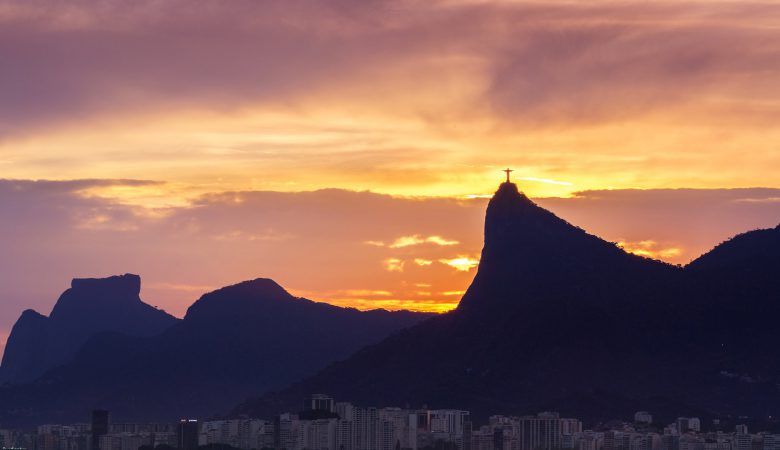What Brazil’s New President Can Do for Innovation
Markets in Brazil, Asia, Germany, and the UK have reacted positively to the news that Jair Bolsonaro will be Brazil’s next president. Brazil’s most important benchmark stock index even climbed 88,000 points to reach an all-time high.
The initial reaction serves as a positive sign that the new president’s economic policy will spur economic growth and attract international investment. Brazil’s GDP barely reached one percent growth last year.
The reaction also represents relief from the business community which was promised greater state intervention, taxes, and continued competition from state owned enterprises by Bolsonaro’s competitor Fernando Haddad.
In addition, Bolsonaro is a clean break from the socialist Workers party which was responsible for the former president Lula da Silva (now in jail for corruption) and his successor Dilma Rouseff (now impeached and removed from office for corruption).
Despite endemic scandal and failed economic experiments Brazil remains an important trade partner to economies in South America, and a major diplomatic partner in ventures such as the BRICS bank.
On the campaign trail Bolsonaro relied on economic advice from Paulo Guedes, an economist from the University of Chicago and an investment banker. Guedes was just appointed to be the next finance minister, and has advised privatizing state-owned firms, cutting taxes, and reducing the number of government agencies.
Such policies would be a boon for private property rights and competition. Brazil can go much further by streamlining intellectual property rights and enforcing those same protections at home and abroad.
For starters, Brazil has a notorious patent pendency problem. A new patent, especially in the life sciences or Information Communication Technology field can take between 10 to 15 years to be approved. That has discouraged companies and inventors from submitting patent applications and limited availability of new technological breakthroughs.
The U.S. 301 Report has kept Brazil on the Watch List for several years. The latest, 2018 report, praised the Brazilian patent office for hiring more examiners and streamlining the application process, yet results need to be seen.
The new government can also help by clarifying, and limiting, the role of Brazil’s drug regulator ANVISA in granting pharmaceutical patents. The current system requires innovators to go through both ANVISA and the Brazilian Patent Office (INPI) at the same time creating an expensive, duplicative, and time-consuming process.
On the world stage Brazil has backed efforts at the WTO and the WHO to undermine the use of patents altogether. For instance, at several multilateral fora Brazil’s ambassadors have been insistent on proselytizing the much-criticized UN High Level Panel (UNHLP) on Access to Medicines report that claimed IP rights and “the market driven system” prevented access to healthcare.
The UNHLP’s recommendations include mainstreaming “flexibilities” like compulsory licenses that allow the government to simply take patented medicines off patent for any reason at any time. Thanks to Bolsonaro’s predecessor Lula da Silva, now in jail, Brazil was an early adopter of this system.
Lula authorized a compulsory license in 2007, for an AIDS drug made by Merck & Co. It took Brazil two years to be able to produce it on its own. Lula claimed it was necessary because he had promised free AIDS drugs to anyone who needed them.
Brazil can also improve on enforcement of existing IP rules by combatting counterfeits and online piracy. Last year the National Council on Combating Piracy and Intellectual Property did not report any success in closing down open market centers. Yet, reproduction and marketing of fakes remains high in the country, the biggest losers are Brazil’s own designers. The Software Alliance estimates 46 percent of software in use in the country is unlicensed, representing a commercial loss of $1.6 trillion.
Brazil certainly has talented entrepreneurs and scientists that are ready to propel the Amazon nation to be a world innovation leader, in everything from agri-tech for bioenergy to space exploration. If Bolsonoaro decides to protect intellectual property he will give these industries a comparative advantage.
A recent OECD Brazil Survey identified the need to massively overhaul the Brazilian tax code that currently requires 2000 hours for an average manufacturing company to comply, Venezuela requires the 2nd most compliance hours with only 793 hours. Brazil also is straddled by outdated and poorly conceived import substitution trade restrictions that make prices of everyday consumer goods more expensive than in neighboring countries.
After several iterations of Worker Party regimes that didn’t respect property rights there are many places where Bolsonoaro can begin his reform projects. An observation from the International Property Rights Index is that changes in the Legal and Political Environment precipitate positive improvements in the physical and intellectual property rights later.

